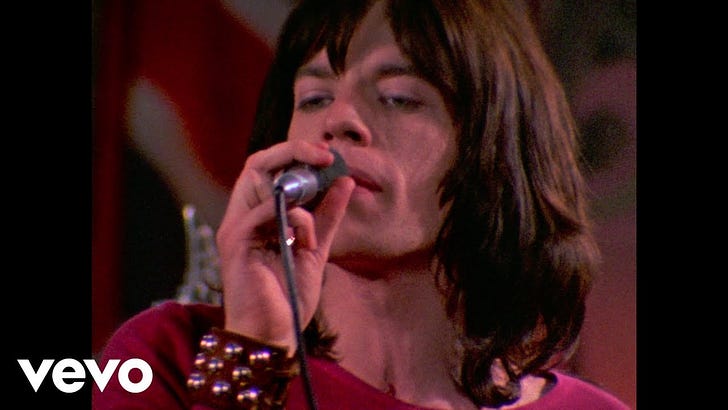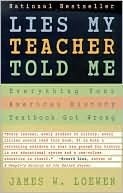214 Posts Down, 5 to Go
While it was not a consistent pattern, I eventually made my history book club reviews a part of my Substack. Since we meet on the 2nd Tuesday of each month, these appear on the following Monday. My book club is one of my favorite activities.
Why is History Education So Controversial?
I recently read a statistic about reading habits in America. Has anyone out there ever heard of a Pareto Chart? It is probably boring mathematics and statistics for most of you. As I look back on my writing I remember the advice “you should write for yourself”. I have always tried to do that and be authentic. I suppose swimming against the tide and trying to make a Pareto chart interesting is a lost cause. This post means only five more to go till the end of 2023 — HOORAY!
A Pareto chart has surprising application to many things in our daily lives. The gist of Pareto is that 80% of what is going on is accomplished by 20% of us. It extends far beyond people but when it comes to reading, it is interesting. So the statistic I found interesting (and disturbing):
A bit more than 50% of US adults did not read a single book last year. This brings to mind a quotation attributed to one of my favorite historical figures, Benjamin Franklin. “If you love life, then you love time, for time is what life is made of”. The thought continues “If you want to know what someone is like, take notice of how they spend their time.” How we spend our time reveals the best profile of what a person is like absent the masks we often sport.
It turns out that beyond half of adults not reading at all, and a subset of those that do read are prolific readers! A Pareto chart has inspired the somewhat common expression that 20% of the people do 80% of the work. I am not so sure about that one but it works for book readers though!
Why the Pareto Tangent?
What the numbers above make clear is somewhere along the line, the joy of reading dies for many of us. Since I enjoy reading, I realize I am perhaps biased toward its importance. It could be that reading books isn’t important at all. We must always permit the possibility we got it wrong. My opinion is the more people explore the world of reading, the better informed they will be. I also believe a well-informed society guards a better future. All of this bumps against mysticism, outright ignorance, raw political power, and misdirection in our modern age. The durably outlandish, highly unlikely, and “good old days” yearning remain capable of highjacking human intellect. I have an idea let’s ban books! What do we know:
The chance to reach people and shape their future is in their youth.
Children, by definition, are in their formative years and developing their interests. To squash this early seems the cruelest and dumbest of plans.
It would seem restriction rather than nurturing reading and exploration is the surefire method to limit their future and what they might share with the rest of us.
Rational limits on content and suitability are reasonable. What I know is educators and librarians are better equipped to develop what is age-appropriate than hare-brained reactionaries. I fear the same rejection of expertise amongst social media imbeciles and rank amateurs purporting to “doing their own homework” is part of the silly trend of the uninformed distorting policy. Next time someone repeats an unlikely statistic or outright absurd, ask them what a Pareto chart or just see if them can even spell it.
I believe the heeding of the zealotry of conservative Christians to make this decision is no more sensible than the Saudi-funded Madrassas in Pakistan and Afghanistan that have created generations of largely illiterate zombies who managed to memorize the Koran. There have been 150M books written, why should we stick to the “innate wisdom” of 2 or 3 much less heed the advice of someone only interested in 1? Life improves and living today can rock. Distrust the ancient and unlikely.
What Does This Have To Do With November’s Book?
I looked forward to this book when the schedule was laid out. Sometimes I think understanding where you’ve been helps us understand our place. I’m not sure when I became a fan of history books. I am pretty sure it wasn’t because of the cheesy textbooks of my education. Our author spends a lot of time identifying errors and omissions in an array of textbooks. He is focused on “things that are wrong”. He is especially focused on “things that are wrong” that fit the political bias that pervades this book.
My Opinion On History Textbooks
I believe history textbooks are a reduced set of stories and even myths that reinforce a point of view. My education was Parochial. I think history books have the challenge of being similar to religious education. Present some limited script, imply it is authoritative, and isolate those who believe something slightly different. Context is not provided as we are trying to map a story spanning many years and perhaps eons. The wrath of the “yeah but” crowd is inevitable and stands firmly in conflict with critical thinking. In the broad reading in my history book club I think I now embrace the historical importance of a person is like a pan of jello. It will start liquid and eventually firm up a bit. It will remain jiggly for a while. Time is required to establish a workable explanation of what happened in an era and its consequences. In the end, however, history textbooks are a series of appended Wikipedia profiles with less depth to fit a curriculum. They offer the DISTINCT DISADVANTAGE that they get no refinement till the next edition.
The Meeting
There were 17 at the table to discuss the book. I think many of them were EXCITED to see the results of the voting for next year’s books! More than 1/3 of the attendees did not finish the book including me! I sat in position 15 so I was able to hear lots of opinions on the book. Here are some anonymous quotes:
“too wordy and repetitive”, “repetitive — too long”, “couldn’t wait to finish”, “it’s an academic book and dated. The difference between the 1995 and 2018 editions was striking”, “stuck in the 1980s”, “print was bad — silly sentences”, “what is missing in history education is teaching people there is complexity in the world”, “not big picture”
My Take & the Consensus
By the time it was my turn to speak, I was relieved that I had abandoned finishing the book. To be quick in my review sans rating (I did not finish) I started with:
I love the expression “that’s an hour I’ll never get back”. I toiled through this book and eventually conceded…I think it is the human condition to consider ourselves exceptional. I had a parochial and later technical education. I learned little of consequence in history class but always wanted to know more. I surveyed a couple of history classes after graduation for FUN. When I traveled I tried to read about the places I visited. Discovering this book club has been a great solution to genuinely understanding history.
Interesting Observations
My favorite takeaways from my fellow members today are provided. Even when the book misses the mark, there is always something to learn:
Things get better
History SUFFERS from the human proclivity to embrace truth as static. In other fields, we call this divine or revealed truth. It is inconceivable parents would accept the idiocy of teaching math or science as if it were still the 1500s.
Education should be about teaching complexity and subtlety instead of mythmaking.
The Poll & Music
Our book club has read a lot of books. I learned something from each of them. That doesn’t mean I always love the book — that’s not how it works. I do, however, love the long-form process of a careful review of a topic. I think because I likely didn’t learn much history in school, that made it a clean canvas for a life of discovery.
If you are interested in a quick history of most of the 20th century, you could do worse than this:





Mark - At age 65, like your historical figures, Im still feeling jiggly about lots of things including myself, history and parenting, even though my kids are in their 30s. Suppose being jiggly can be a good thing? Thanks for giving me the new concept and visual of being Jello Jiggly. "I now embrace the historical importance of a person is like a pan of jello. It will start liquid and eventually firm up a bit. It will remain jiggly for a while"
I never saw that video before (I've lived a sheltered life) - very cool. Did I spot John Lennon in there, btw?